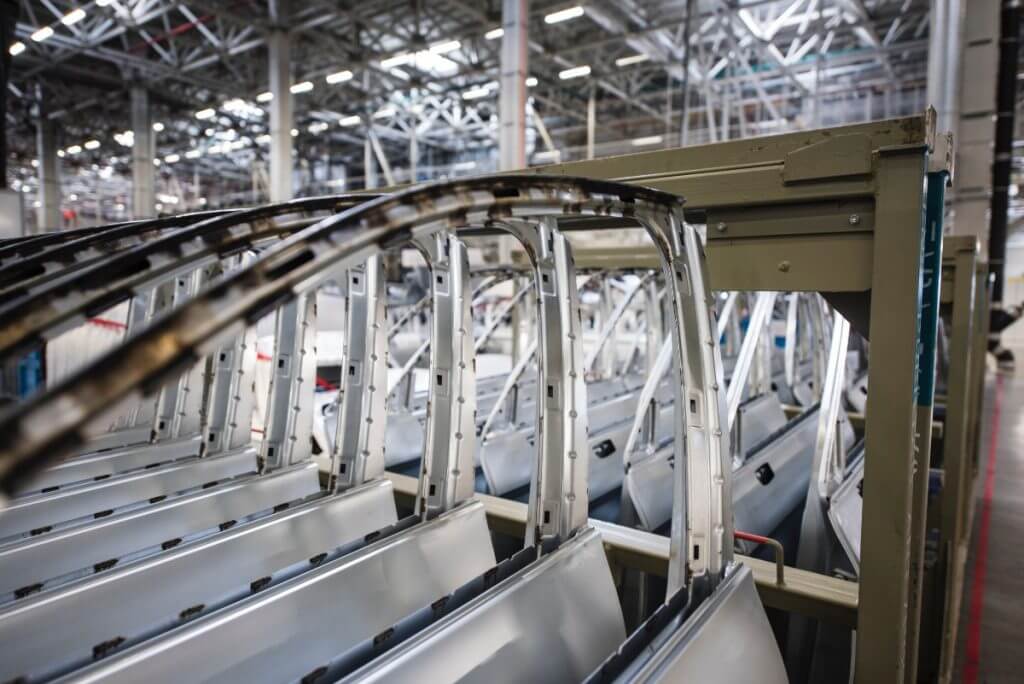For over 200 years, the world as we know it has been shaped by industry. Ever since the First Industrial Revolution of the early 19th century, technology and scientific development have led humankind into the future, changing everything in the process. The 20th century saw several major technological leaps forward, impressive industry expansion, and a switch from the Second to Third Industrial Revolution. At the moment, we are in the middle of the Fourth Industrial Revolution (Industry 4.0), which promises radical improvements to complete the production process and incorporating every technology known to man.

What Is Industry 4.0?
The term “Industry 4.0” has been around since 2011 and is used as a designation for the process of computerising and digitalising standard manufacturing. Suppose we know that Third Industrial Revolution is a digital revolution that started in the late 20th century with the wide use of the internet. In that case, the Fourth Industrial Revolution or Industry 4.0 is a logical step toward implementing digital technologies, M2M communication (machine to machine), and the Internet of Things into large-scale manufacturing. The goal is almost complete automation of any production process, increased efficiency, communication between work stations or production segments, and self-monitoring, amongst other things.
Automotive Industry
Over the years, the automotive industry has been fertile ground for many innovative ideas and production processes. From the days of Henry Ford’s ingenious moving assembly line in 1913 over the widespread use of robots and automation to today’s fully digital manufacturing process, the car industry has been a hub for new ideas and constant development. That is why automotive manufacturing will be one of the first to accept Industry 4.0’s postulates and move to complete automation and machine-to-machine concepts.
The Example of Industry 4.0 in Automotive Manufacturing
One of the critical aspects of the Industry 4.0 doctrine is the increased and constant communication between production segments or machines, which is very important for car manufacturing. As you probably know, in order to assemble one vehicle, the factory needs thousands of components installed at the right moment. Most of those parts are not produced in-house and are sourced from different factories or subcontractors. Timely delivery is crucial as well as production schedules. Coordination between parts warehouses, delivery services, production managers, and assembly schedule is vital for smooth operation; however, in real life, that is not always the case. However, by implementing the Industry 4.0 standards, car companies can overcome those difficulties and even instantly change the production process in order to keep the assembly lines occupied while waiting for needed parts.
For example, imagine the car plant which is producing a sought-after model and has a strict schedule. The production process is highly dependable on the supply of the parts and materials. Let’s say that that supply chain is interrupted and that the components are not able to arrive on time, which is an everyday reality for most companies. The global car industry recently experienced significant production delays over a short supply of semi conductors and computer chips, which forced several assembly plants to close down and cause enormous costs and problems for the car companies. However, if modern car companies switched entirely to Industry 4.0, this wouldn’t happen.
A fully digital manufacturing process with direct communications between fully-automated work stations or production segments would predict any potential problems and organise the production to avoid shutting down the assembly lines. This means that the system will contact the suppliers in advance, have insight into in-stock lists, calculate delivery times, and incorporate any valuable data to precisely predict when the parts are available. Suppose for some pieces, the exact delivery times are unknown. In that case, the 4.0 system will be capable of continuing the production, changing the production process, keeping the workstations busy while waiting for missing components to be delivered to the site. For example, install the interior and glass while waiting for the engine and transmission to arrive. Of course, having a fully modular assembly line is required, and it is something that the car industry, in general, will need to adopt as soon as possible. At the moment, assembly lines are fixed, and if one component is missing, the production is completed, and the whole line stops.

The Advantages of Industry 4.0 in Automotive Manufacturing
The advantages of Industry 4.0 are enormous:
- This doctrine will continue the robotisation allowing the machines to communicate directly and without any delays giving them AI capabilities.
- The whole production process is elevated to the next level and given the ability to self-monitor and to detect any potential problems solving them as soon as they appear.
- Industry 4.0 will be much more efficient and require less assistance from humans.
- By intelligent engineering, the whole Industry 4.0 implementation into the car industry can help energy savings as well as carbon neutrality and sustainability, which are vital aspects of modern technology.
Digitalising car assembly from start to finish will make the entire process significantly independent, cheaper, and much safer. The result could be faster implementation of new technology, higher production and quality standards, absence of production delays, and ultimately more affordable cars. Of course, the complete process would be easier to control and overlook and would require less human involvement than it currently needs.